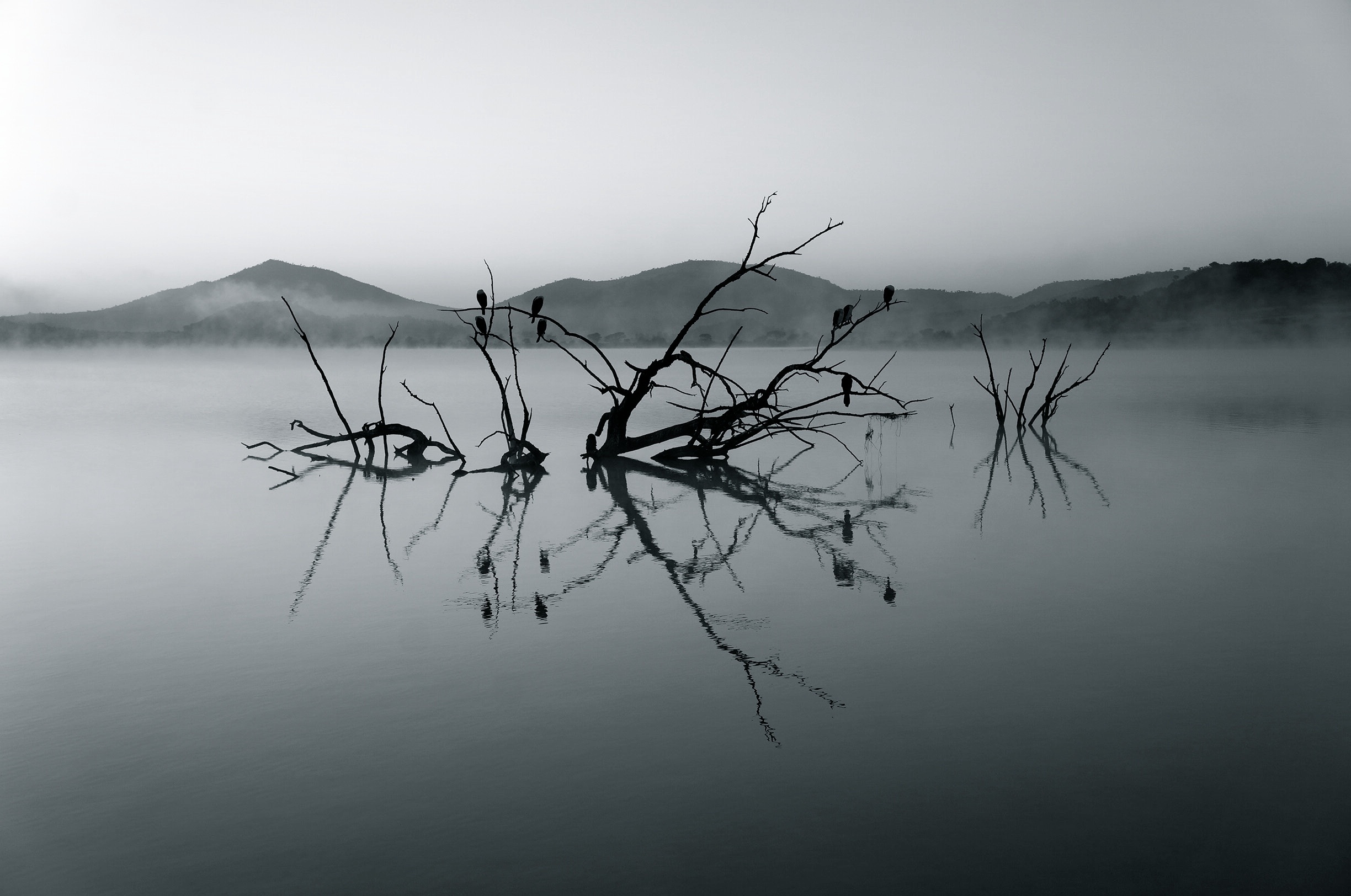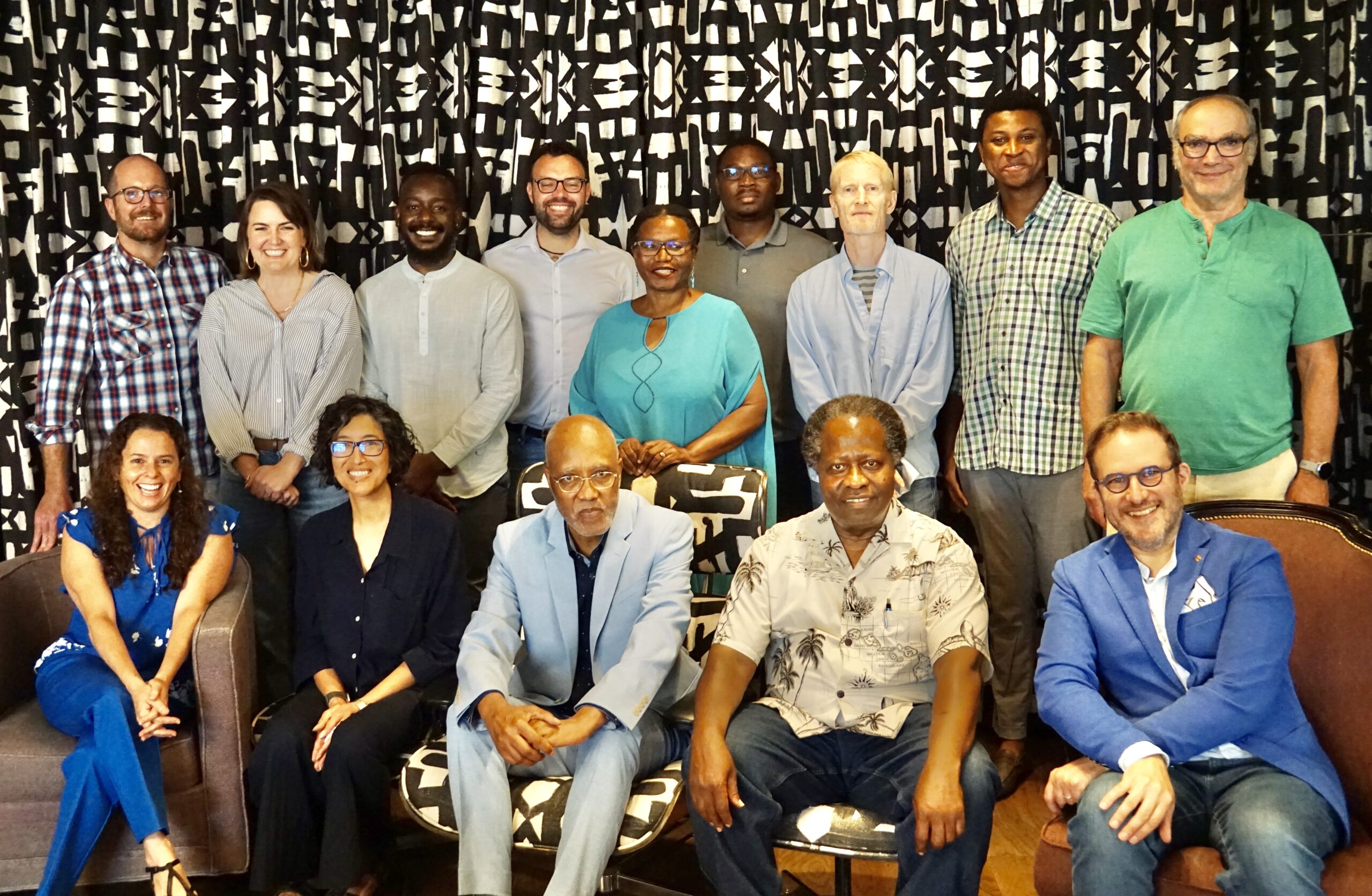
UNIVERSITY PARK, Pa. — National parks in East Africa protect endangered wildlife but sometimes do not support local human populations, according to Edwin Sabuhoro, assistant professor of recreation, park, and tourism management at Penn State. New research by Sabuhoro and two Penn State doctoral students from East Africa demonstrated that poverty and lack of adequate food supply drive most of the poaching and other illegal activities in one such park.
The African Studies Program is delighted to announce that our colleague Michelle Sikes has been promoted to Associate Professor, effective July 1.
This is a photograph of African Studies faculty, affiliates and graduate students at the close of the African Studies Retreat on 8/14/2023 at the Graduate Hotel in State College.

African Studies own Dr. Yael Warshel publishes new article exploring, “So-called firsts scored by the Moroccan ‘Muslim, Arab, African, post-colonial’ and Amazigh Atlas Lions at the 2022 World Cup football games,” that is out now in the Journal of North African Studies, 28(2), 219-229.
“Edwin Sabuhoro, assistant professor of recreation, park, and tourism management and African studies, has been named the Ann Atherton Hertzler Early Career Professor in Global Health.
Sabuhoro’s research focuses on providing evidence-based data to community leaders, park managers, and policymakers in East Africa’s Virunga area (at the geographic intersection of Rwanda, Uganda, and the Democratic Republic of Congo) and Serengeti ecosystem area (Tanzania and Kenya). These data, including information related to health, food, education, and finances, help leaders and policymakers make informed decisions on the physical and economic health of their communities and the wildlife areas that surround them…”
Click link below for full article:
This month Channel View Publications/Multilingual Matters is publishing Decolonial Voices, Language and Race edited by Sinfree Makoni, Magda Madany-Saá, Bassey E. Antia and Rafael Lomeu Gomes. In this post the editors explain how the book came together and introduce the new series that it’s part of, Global Forum on Southern Epistemologies.
This book is based on a series of individual interviews with some of the most original thinkers and scholars who have researched the areas of decoloniality, language, race, and Southern Epistemologies. It gives insight into how the seasoned authors have written about these topics and documents their interaction with the editors of the book and the participants of the Global Virtual Forum. Apart from the five conversational chapters, the book contains a Foreword (by Prof. Alastair Pennycook), an Introduction in which the co-editors present personal vignettes and methodological reflections about the production of the volume, and an Epilogue authored by co-editor Prof. Bassey E. Antia. This book is part of the Global Virtual Forum, which is an open and politically engaged virtual space.
Congratulations to Olusegun Soetan, assistant teaching professor of African studies, who is featured in this week’s edition of the Penn State’s Creative Arts Journal. Check it out here: Africa In Cinema: A Q&A with Penn State Professor Olusegun Soetan
Congratulations to Tembi Charles, dual doctoral candidate in comparative literature and African studies, who was awarded the Africana Research Center Dissertation Fellowship for the 2022-2023 academic year.
Tembi is currently completing her time as pre-doctoral fellow at the Center for Humanities and Information. She was awarded this fellowship for the 2021-2022 academic year to work on her project entitled “Sonic Informatics: ‘Processing’ the Ethnicized Soundscape in Zimbabwean Migrant Fiction” .
Gregory Jenkins, professor of meteorology and atmospheric science, geography, and African studies, had his research spotlighted in the Penn State News article, “African dust crosses the Atlantic”.
“We are looking at how much dust is being transported into West Africa in the winter and across the Atlantic in the summer,” said Dr. Jenkins. “In the winter, it is low in the atmosphere and in the summer, it is higher in the atmosphere. Dust has an impact, especially on health.”